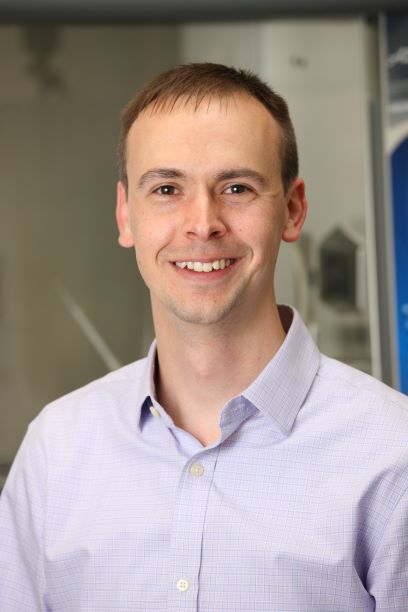“Supramolecular Peptide Assembly into Hydrogel Biomaterials for Neural Tissue Engineering”

Who: Dr. Kyle J. Lampe, PhD, University of Virginia
Date: Friday, April 12th, 2024
Time: 10:45-11:45 AM
Location: HST/HE 211
ABSTRACT:
Neural regeneration within the central nervous system (CNS) is a critical unmet challenge as brain and spinal cord disorders continue to be the leading cause of disability nationwide. In the Lampe Group, we focus on glial cells, specifically the underappreciated oligodendrocyte which creates the essential myelin sheath that insulates axons and supports proper signal conduction. Engineering microenvironments conducive to neural stem cell guidance and differentiation in vitro and therapeutic regeneration in vivo can be addressed with hydrogel materials that mimic native neural tissue. Designer multifunctional hydrogels are well-suited as they support independent tuning of multiple biochemical and biophysical properties to create physiologically-relevant engineered extracellular matrices. We use a variety of building blocks to create tunable 3D hydrogels based on semi-synthetic polymers or engineering peptides.
I will discuss our recent work designing viscoelastic networks of self-assembled short peptides. I will describe how our rapidly assembling pentapeptides for injectable delivery (RAPID) spontaneously form supramolecular structures dependent on amino acid composition, sequence, and racemic content. Coupled with all-atom molecular dynamic simulations we have been able to demonstrate the importance of hydrogen bonding and pi-interactions on peptide assembly, nanoribbon formation, and ultimately, gelation. I will further show how the RAPID system highlights the potential of peptide stereocomplexation, where combinations of l- and d-form peptides give rise to dramatically different mechanical properties due to their remarkably different nanostructure assembly. These physical hydrogels demonstrate shear-thinning, self-healing behavior conducive to minimally invasive, syringe delivery of viable neural cells. By carefully tuning material parameters in our system, we engineer cell-instructive elements to directly influence stem cell differentiation and self-renewal.
BIO:
Kyle is an Associate Professor in the Department of Chemical Engineering at the University of Virginia, with additional appointments in Biomedical Engineering and Neuroscience. He was an American Society of Engineering Education “20 under 40” list of faculty for his mentoring, teaching, and research. He received a career development award as part of the inaugural class of Translational Health Institute of Virginia (THRIV) scholars at UVA. He trained as a NIH NRSA postdoctoral scholar at Stanford University in the department of Materials Science and Engineering. Kyle completed his Ph.D. and B.S. in Chemical Engineering from the University of Colorado, Boulder and the Missouri University of Science and Technology (Rolla, MO), respectively. The Lampe Group is a proud supporter of students from first generation, low income, or rural families. The Lampe Group investigates biomaterials for tissue engineering, regenerative medicine, and drug delivery within the central nervous system. Our group’s mission is to create a supportive environment for science and engineering trainees to study neural regeneration via integration of cell and material function.
This event is free and open to the public. Please reach out to the Department of Bioengineering's graduate coordinator, Rebekah Short (rjs323@lehigh.edu) with any questions or comments.
